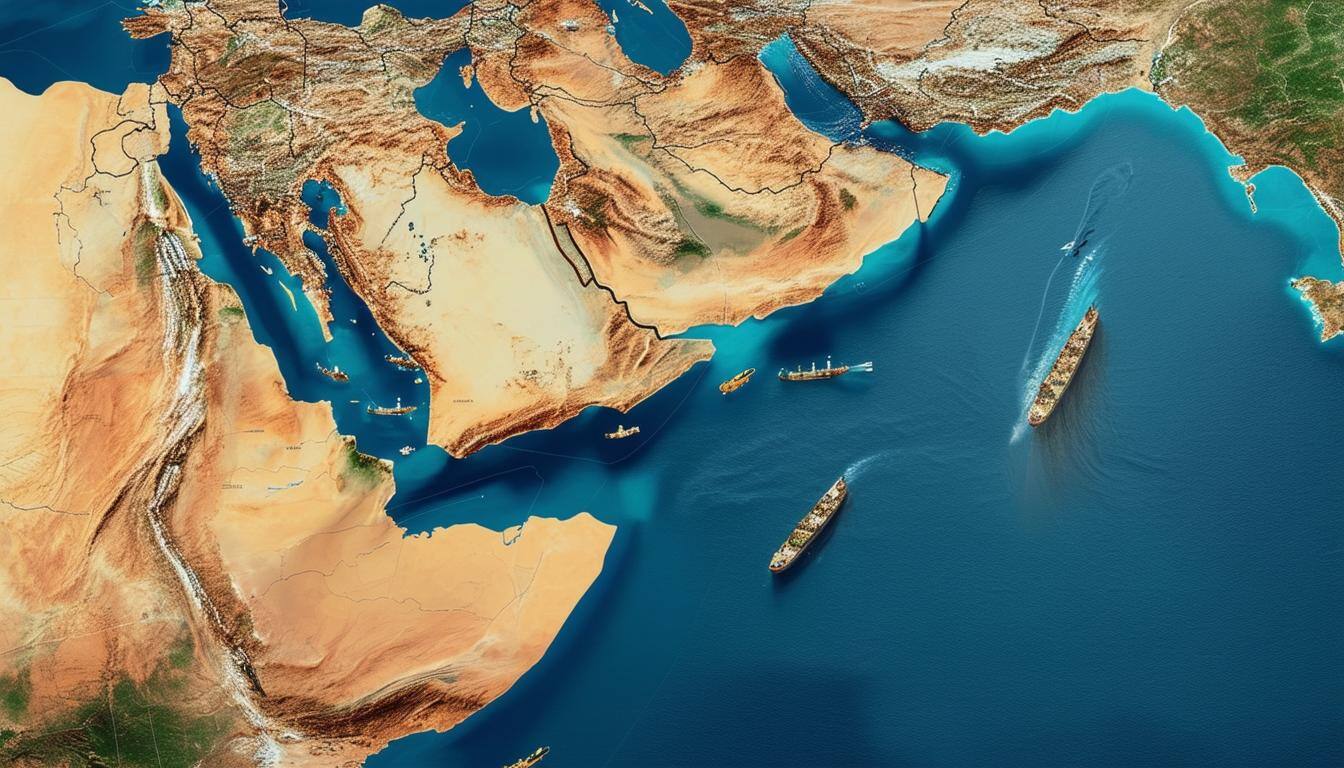The Red Sea region has emerged as a focal point of geopolitical concern due to escalating Houthi attacks that threaten global shipping routes and the security of countries like Israel.
This turmoil is compounded by ongoing conflicts in neighboring regions, such as Sudan and Somalia. As these crises unfold, there is a growing recognition that effective solutions hinge on multilateral collaboration among regional and international players.
Historically, the Red Sea is a vital corridor for global trade, with the Suez Canal at its southern end being particularly crucial. In recent months, the Houthi militia, supported by Iran, has intensified attacks on Israel and maritime traffic, notably around the Bab al-Mandeb Strait. This strategic waterway is essential for international shipping, accounting for 15% of global merchant traffic and significantly impacting the economies of countries relying on this trade route.
Israel is acutely affected by these developments, particularly with the shutdown of the Port of Eilat—previously a critical entry point for merchant vessels. This disruption increases shipping costs and extends travel times for goods moving to and from the eastern Mediterranean, posing a threat to Israel’s economic stability. Moreover, Iran’s growing influence in the region, as evidenced by its military presence and connections with the Houthis, further exacerbates security concerns.
Amid these threats, Egypt also perceives the Houthi actions as a direct challenge to its national security. While seeking a ceasefire in Gaza as a solution to the conflict, Egypt is faced with the dilemma of addressing the immediate threat posed by the Houthis. The Houthis have engaged in extensive military operations, launching hundreds of drones and missiles, significantly diminishing maritime traffic through key shipping lanes.
In response to these threats, there is an urgent call for the creation of a regional framework that includes not only Israel and the Arab states but also major powers like the United States and China, both of whom have vested interests in maintaining maritime security. Yet, many Arab nations are hesitant to publicly condemn the Houthis or align openly with U.S. efforts, favoring diplomatic avenues instead. The ongoing conflicts in Sudan and Somalia, coupled with the rising threat of Iranian expansionism, complicate the regional landscape.
Furthermore, Ethiopia's recent recognition of Somaliland’s independence, in exchange for access to the Red Sea, has escalated tensions with neighboring states, particularly Egypt, which views this as a breach of Somali sovereignty. This situation reflects broader regional rivalries and the fragility of state relations in the Horn of Africa.
In conclusion, while the challenges in the Red Sea region are formidable, they also present opportunities for enhanced cooperation among pragmatic states. The situation necessitates a strategic approach to regional security, fostering partnerships to counteract threats posed by the Houthis and Iranian influence. To advance collective interests, particularly concerning freedom of navigation and economic stability, a concerted effort is required to build frameworks for collaboration among the various actors involved. Ultimately, addressing these interconnected crises will require innovative solutions that consider both the immediate threats and the long-term stability of the Red Sea region.

Source:INSS





